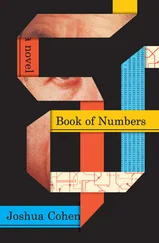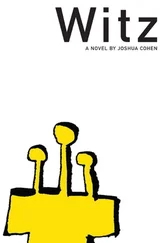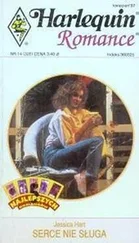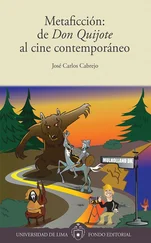Just inside, seated in a chair with a singular daintiness, was a bear. A bear distinctly untaxidermical. It was a crossdressing bear, if animals can be said to be transvestite, if creatures have enough gender identity to make their wearing of the opposite sex’s human clothing something approaching a meaningful statement, any statement at all. A pince-nezed male shebear in a windsocklooking bonnet speckled with sunflowers, above skirts of billowing hospitalgowns patched with flag, the vex of a nation he could not place. The entirety had been cashiered from a fable, discharged from a land of porridgecomplexioned dwarves (his youthful escort, assembling protectively around).
The mamabear gestured him to a chair of his own, of a similar make: a fussy interiorism high of haunch, tiny of limb — as if not a perch but perched itself, upon fluted legs, the feet with chiseled toenails, with claws — upholstered in pelage, in uncomfortable quills that rustled with every shift and he shifted, he couldn’t force himself to keep still. Between the chairs was a table as swarmed as the sexagenary square of a chessboard, draped with a drab spiderweb lace doily, set with a corroded samovar fixtured with a bulb, its stray filament illuminating two saucers, two companion cups. A battered phrasebook’s pages folded down. Not a phrasebook but his passport, atop his wallet, blueblack both. And the keys to a faraway home tenanted, it must’ve been, by faraway and worried parents.
It was the dusty sittingroom of a pensioner with no children or none who visited regularly, only the relict thievelets who, kissing their mamabear’s jeweled paw, raised that dust in the rowdy muster of departure. They shut the door behind them — that door set flush with the shadows — spun its lock, as if adjusting a radio, or as a vault is sealed — suddenly, it was as if he wasn’t sitting in a room anymore but amid night itself.
He felt tickling, below it all — but how had he not noticed — a rug of bearskin.
His host growled in response to this inspection, said, Publicov’s no liar — he said he’d never met anyone who wants a girl like you do.
So what type do you want, my dear? of what species, my dearest? I have every model in stock.
Slav slave or Central Asian combination? vagina where the anus is or anus where the vagina is? there’s nothing we don’t do: oral exclusive, mutual masturbation, S&M, gruppengrope, frottage.
I want one, he said, her name is Moc.
Roleplay then?
No role, Moc.
No doubt we have her too — with this, the bear madame growled a woman from out of the fuscation: a big brutish wench with a figure like a log her employer could hibernate inside, who looped her wildweed hair and pouted lechy her smacked black lip, where she had a sore.
That’s not her.
Of course it’s her — the newest version. You won’t recognize the difference.
I want Moc.
You would.
The woman’s giant trunking mass dulled abruptly into furniment again: secretaire, escritoire — into nothing that refined, just a handleless lunk of domesticated linden. Where you’d keep a will you’d like to lose.
And I want immortality, said Madame bear, but I can’t have it — I want to own a helicopter and a yacht and a gym franchise, I want to downsize half my staff and fix the lottery in Kyiv — but who can live from wishes?
Who?
Having held every other bodypart, his hands could hold his hands.
Madame bear sniffed, said, OK, so you’re searching for this Moc — I’ll tell you what, I’ll help you, I’ll tell you how to find Her.
And from now on, dearest Reader, it’s too late to doubt—
There is, the bear said, a place.
Then it covered itself with a shawl, tugged from a puddle in its lap — the fringe of that rug of bearskin, omnivorously soiled, full of thistle.
It was deeper night and eurous gusts found the spaces between words to fill them with their chill.
This isn’t a story, David, this is a place (and here another creature’s prose is indiscriminately enhanced: the bear’s original locutions being even more melodramatic, more foreboding, stalled by tedious epistolaries) — but it is Far far away, it is dangerously enchanted.
The bear paused to siphon tea for two from the samovar looming like a fervid moon above them. Lighting his wallet, lighting his keys.
The brew was black and ropy, with a hint of citrus, of bergamot, then, he sipped again — it was still too hot — this taste unplaced, hot and dull but rublesucking sour.
He put his cup back on the saucer, placed the saucer atop his passport for a coaster: his passport picture, he felt, already out of date — it was mortifying and he hoped the bear wouldn’t ask to examine it, wouldn’t comment.
Or it both exists and doesn’t exist, the bear went on, I myself don’t know how it manages that, but you will.
My lovely, my darling.
Though when you’d know is precisely when you’d no longer be able to tell me.
It’s distant, David, I can tell you that, then once there, go higher.
Go high atop a mountain, a hill that’s been fortified, a walled settlement walled deep in the past.
At least you’d think it was centuries ago — all that mud, that woodstirred mud. Before electricity even — this is important — before all that current that connects the world like lines of latitude, reception like lines of longitude, the equator of constant signal.
The houses look that old too, they look ancient, they’re falling down, their foundations rotted stumps, sinking, sunk, their roofs are thatched and leaking weather.
There in the center of town, because it is a town, there in the center of the center as if the hub where all the wheelspokes meet, is a square, and in the center of that square is a well and if you gaze and gaze and gaze into that well late at midnight you will see, it’s said, your own reflection — this is because there’s a measure of water at the bottom — what else would you expect to see down there, tell me?
But.
(The bear tugged tight its holeworn shawl — that thorny fluff indistinguishable from its fur — then crossed one leg over another like a popular child psychologist, and this struck him as faintly ridiculous: one claw resting on a claw of the chair — the bear was smaller than he’d thought, it didn’t reach the floor.)
But the inhabitants of this town — they are why it’s so special, David, Orlando, friendly Greg — whatever you wish to be called.
Cinching its socky bonnet, the bear’s ears skewed out the sides: mangled ears, one lively, the other limp, like the rushing minute and lagged hour hands of a clock.
When a girl like Moc decides to shed her coy lycras and molt her cloying denims to engage in sexual intercourse on camera, that’s when it happens — that’s when the, shall we say, “funniness” happens.
(Please forgive my language — when you recall in your own words how I’ve told this tale to you tonight I hope you’ll have me speaking better.)
This is a special change I refer to, a sort of conversion. After they’re shot, if you’ll follow my explanation, after these girls are shot, they cease to exist.
Rather I’m speaking of an existence that’s not an existence — after these girls are filmed doing what it is they do, they no longer belong to themselves but to the world, as they’re no longer merely physical but image too, they are everywhere, they are everyone’s.
Where do they exist then, ask yourself, if they do?
In themselves, in their own skin, or as imagined — as unimagined — on the screen in your lap?
They become women/nonwomen — having been used, having been overused, and so weakened, weak, there’s a grain and a haze to them, a sapping depletion (indeed, everyone’s fate is the same and is sordid).
Читать дальше












